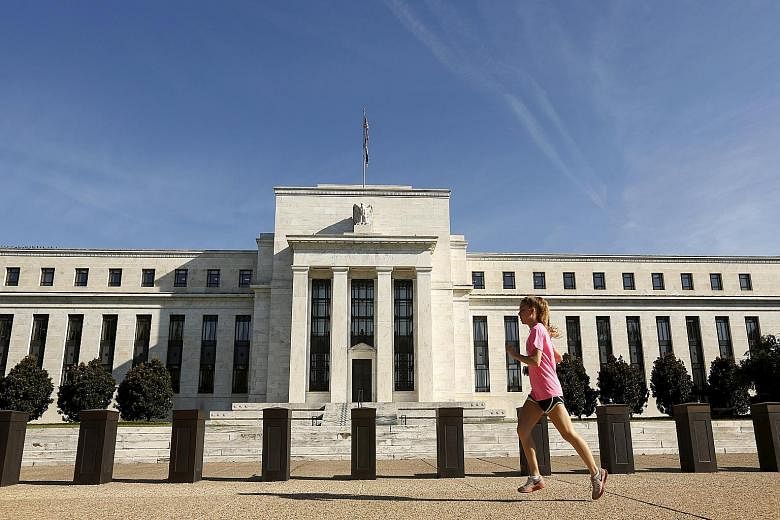After months, if not years, of speculation and debate, the United States Federal Reserve (Fed) has left the financial markets in a holding pattern once again, deciding to keep its benchmark short-term interest rate steady at near zero.
In our view as investors in emerging markets, this isn't necessarily positive news, because we are still left with the uncertainty that has been plaguing the market for some time. We know that the markets dislike uncertainty, so we could also be left with continued volatility through year-end.
At the conclusion of its two-day policy meeting on Sept 17, the Fed left the Federal funds rate unchanged, citing low inflation and instability in the global economy.
I believe that once the Fed does take action, it will not be the start of an aggressive tightening regime. With other central banks around the world moving in the opposite direction - lowering interest rates - the Fed can't have too strong an impact and is likely to be extremely cautious and incremental with any future actions.
My feeling is that the underperformance in emerging markets overall this year can be partly attributed to the uncertainty about interest rates. We saw a similar type of downturn in emerging markets two years ago, when the Fed first started hinting at increasing interest rates, which was dubbed the "taper tantrum".
Some commentators have stated that emerging markets have entered a vicious circle of capital outflows, currency weakness and liquidity with higher interest rates, which has resulted in weaker growth. This, in turn, has prompted more capital outflows, feeding into a negative loop.
On the other side of this equation are the positive aspects.
If in the coming months, the Fed feels confident enough in the US economy to raise interest rates, it could be viewed as positive news for emerging markets, particularly those with export ties that benefit from a strengthening US economy.
We would anticipate that a stronger US economy would likely bring increased demand for more imported goods, and a stronger US dollar relative to other emerging market currencies could put emerging markets in a more favourable trade position. Weaker currencies tend to promote exports and help manufacturers.
In contrast to the Fed, central banks in emerging markets generally are not considering the question of raising interest rates in their home countries.
The largest - China - has been working to stimulate its economy through lower interest rates and other measures.
We generally see lower inflation and, therefore, lower interest rates in emerging markets going forward, despite the threat of future US interest rate actions. At the government level, emerging market government bonds in many cases are seeing higher yields, but this phenomenon does not necessarily carry through to the private sector.
To us, the key question for equity investors in all this news is, where does value lie?
With the downturn this year in emerging markets generally, equity valuations have become more attractive, with declining price-earnings ratios. Of course, with the low interest rates that we have seen, average price-earnings ratios have been moving up in the past few years. Only recently, with the downturn in the markets, have we seen more reasonable ratios. But in many cases they tend to be high by historical standards, and therefore a careful stock selection programme is necessary.
With the slowdown of economic growth in China, we have also seen a deceleration of imports, although imports are still substantial not only for China but for all emerging markets. It's important to note that the value of imports for certain commodities may be down since commodity prices have fallen in US dollars but the quantity may not have declined.
In the case of China, its major imports are materials such as metals, chemicals and other crude materials, including iron ore, which represent almost 30 per cent of total import value, followed by industrial machinery at 26 per cent and energy imports, including coal, oil and gas, at about 14 per cent.
Exporters of those items are therefore likely to be impacted by China's slowdown, although as noted, further improvement in the US economy should be welcome news to help buoy these industries going forward and help stabilise global markets generally.
A series of rapid or large interest rate increases could further destabilise the markets over the longer term, but as stated, we don't see that as a likely course.
We would also emphasise that while some recent market shocks have been unsettling to many investors, volatility goes both ways - we could see equally sharp rebounds in equity markets take hold and asset flows shift as more positive events unfold.
•The writer is executive chairman of Templeton Emerging Markets Group.

